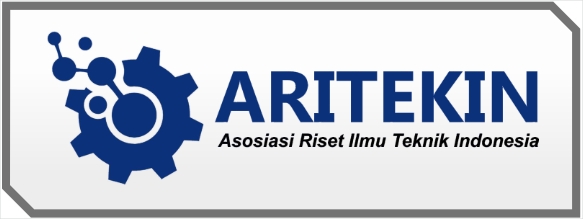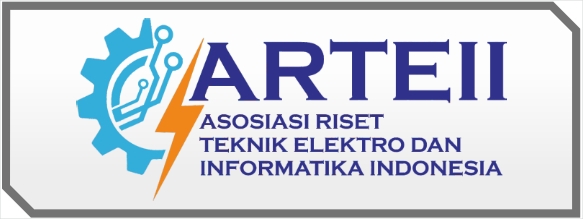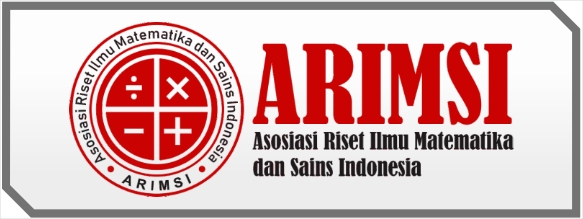Penggunaan Sistem Informasi Akuntansi Pada Pelaporan Keuangan Organisasi: Studi Kasus Pada Non-Governmental Organization
DOI:
https://doi.org/10.59581/jap-widyakarya.v1i3.970Keywords:
accounting information system, user competence, financial statements, internal controlAbstract
Advances in technology have made Accounting Information Systems an inseparable part of all forms of organization. Organizations use standardized systems to ensure a balance of comparison and reporting. The application of the Accounting Information System (SIA) in non-governmental organizations has not been carried out optimally due to several obstacles. This study seeks to explore the use of accounting information systems used by non-governmental organizations in the Central Java region and to determine whether these organizations are capable of designing systems independently in accordance with international standards. The study also evaluates system usage, user competence, system quality, design capabilities and their impact on financial reporting. The research method used surveys and interviews of 50 employees of non-governmental organizations who had used accounting information systems. Quantitative data processing using the SPSS program and thematic analysis for interview results. The findings of this study show that there is a positive and significant relationship between the Accounting Confirmation System and financial reporting. The findings show that there is a positive and significant relationship between AIS and financial reporting. However, it was also found that not all were able to design the SIA independently due to a shortage of experts and funding.
References
Ahmed, Rebwar. (2019). The impact of Accounting Information Systems’ Quality on Accounting Information Quality.
Al-hawari, Feras. (2017). Analysis and Design of an Accounting Information System. 3. 16-21. 10.24178/irjece.2017.3.2.16.
Assrfa, Minyahil, Yadavilli Jagannadha Rao, and Abenet Yohannes. 2020. Designing of Accounting Information System for Small and Medium Enterprises: Application of PLS-SEM. International Journal of Sciences: Basic and Applied Research (IJSBAR) 54 (3): 124–39. https://ssrn.com/abstract=3734436
Azhar Susanto. (2008). Sistem Informasi Akuntansi, Struktur-Pengendalian Resiko-Pengembangan. Bandung:Lingga Jaya.
Baugh, M., Ege, M., & Yust, C. (2020). Internal control quality and bank risk-taking and performance. AUDITING: A Journal of Practice & Theory, 19-37. http://dx.doi.org/10.2139/ssrn.3302936
Bushati, Brilanda & Šehović, Damir & Binaj, Ilir. (2015). The Importance of Information Technology Use in Business Management. Academic Journal of Interdisciplinary Studies. 10.5901/ajis.2015.v4n2p487.
Cepêda, C.L.M., & Monteiro, A. P. (2020). The accountant’s perception of the usefulness of financial information in decision making – a study in Portugal. Revista Brasileira de Gestão de Negócios, 22(2), 363–380
Chiang, Hsiangtsai & He, Li-Jen & Shiao, Cang-Fu. (2015). Financial Reports Quality and Corporate Social Responsibility. Asian Economic and Financial Review. 5. 453-467. 10.18488/journal.aefr/2015.5.3/102.3.453.467.
Chulkov, Dmitriy and Wang, Xiaoqiong, Corporate Social Responsibility and Financial Reporting Quality (November 23, 2021). Available at SSRN: https://ssrn.com/abstract=3970172 or http://dx.doi.org/10.2139/ssrn.3970172
Cordery, Carolyn & Belal, Ataur & Thomson, I.. (2019). NGO accounting and accountability: past, present and future. Accounting Forum. 43. 1-15. 10.1080/01559982.2019.1593577.
Dmour, A. &.-F.-l. (2017). Accounting Information System and Its Role on Business Performance: A Theoretical Study. Journal of Management and Strategy, 79.
Floştoiu, Sebastian. (2019). The Role and Place of Accounting Information in the Decision-Making System. International conference KNOWLEDGE-BASED ORGANIZATION. 25. 46-51. 10.2478/kbo-2019-0055.
Haleem, A., & Teng, K.L. (2018). Impact of User Competency on Accounting Information System Success: Banking Sectors in Sri Lanka. International Journal of Economics and Financial Issues, 8(6), 167–175.
Hall,A.J. (2004). Accounting Information Systems.4th Edition.Singapore: South Western. Heavrin,C., et al. (1997). Fundamentals of Organizatinal Behavior. USA: Prentice Hall,Inc
Hanifi, Farhad & Taleei, Asgar. (2015). Accounting information system and management’s decision making process. Management Science Letters. 5. 685-694. 10.5267/j.msl.2015.5.004.
Iskandar, D., & Setiyawati, H. (2015). The Effect of Internal Accountants’ Competence on the Quality of Financial Reporting and the Impact on the Financial Accountability.International Journal of Managerial Studies and Research, 3(5), 55-64.
Janka, M., Heinicke, X., & Guenther, T. W. (2020). Beyond the “good” and “evil” of stability values in organizational culture for managerial innovation: the crucial role of management controls. Review of Managerial Science, 14(6), 1363-1404.
Khan, A. (2017). Impact of Accounting Information System on The Organizational Performance: A Case Study of Procter And Gambldengane. Star Research Journal, Vol. 5, Issue 12 (6) 26-30.
Lawal, A., Mohamed, R., Abdalla, H., ElKelish, W. W., & Lasyoud, A. A. (2022). The role of accounting information systems in firms’ performance during the COVID-19 pandemic. Journal of Governance & Regulation, 11(1), 45–54. https://doi.org/10.22495/jgrv11i1art5
Martínez-Ferrero, J. (2014). Consequences of financial reporting quality on corporate performance: Evidence at the international level. Estudios de Economía, 41(1), 49-88
Mitchell, F., Reid, G., & Smith, J. (2000). Information system development in the small firm: The use of management accounting. CIMA Publishing.
Mitchell, F., Reid, G., and Smith J. (2000). Information System Development in the Small Firm: The Use of Management Accounting. CIMA Publishing.
Mitrovic, A. (2016). Accounting Information Systems as a Support to Financial Reporting of Companies. International Scientific Conference on ICT and e-Bussiness Related Research. Sinteza, 407-411.
Nilsson, Anders & Gustas, Remigijus & Wojtkowski, Wita & Wojtkowski, W. & Wrycza, Stanisław & Zupančič, Jože. (2006). Advances in Information Systems Development: Bridging the Gap between Academia and Industry. 10.1007/978-0-387-36402-5.
Patel, S. B. (2015). Effects of accounting information system on Organizational Profitability. International Journal of Research and Analytical Reviews, 72-77.
Petter, S., DeLone, W., & McLean, E. (2008). Measuring information systems success: models, dimensions, measures, and interrelationships. European journal of Information Systems, 17(3), 236-263
Rezaei, A., Asadi, A., Rezvanfar, A., & Hassanshahi, H. (2009). The impact of organizational factors on management information system success: An investigation in the Iran's agricultural extension providers. The International Information & Library Review, 41(3), 163- 172.
Rosa, D., and A. P. Purfini. 2019. Analysis Effect Quality of Accounting Information Systems to Support Company Performance. IOP Conference Series: Materials Science and Engineering 662(3).
Sajady, H., Dastgir, M., & Nejad, H.H. (2012). Evaluation of the effectiveness of accounting information systems. International Journal of Information Science and Management, 6(2), 49-59.
Shen, J., & Han, L. (2020). Design process optimization and profit calculation module development simulation analysis of financial accounting information system based on particle swarm optimization (PSO). Information Systems and e-Business Management, 18(4), 809- 822.
Smith, J., & Binti Puasa, S. (2016). Critical factors of accounting information systems (AIS) effectiveness: a qualitative study of the Malaysian federal government. In British Accounting & Finance Association Annual Conference 2016.
Soudani, Siamak. (2012). The Usefulness of an Accounting Information System for Effective Organizational Performance. International Journal of Economics and Finance. 4. 10.5539/ijef.v4n5p136.
Stair.R. dan Reynolds,G. (2009). Fundamentals of Information Systems 3rd/4th. USA: Thomson
Susanto, A. & Bong, Meiryani. (2018). The quality of accounting information system and its impact on the quality of accounting information: User ability and top management support. Journal of Engineering and Applied Sciences. 13. 384-387. 10.3923/jeasci.2018.384.387.
Susanto, A., (2013). Information Technology for Business and Accounting. Lingga Jaya Publishing, Bandung, Indonesia.
Tan, F. O. (2016). The impact of accounting information systems on internal auditors in Turkey. Marmara Üniversitesi Öneri Dergisi, 12(46), 245-260.
Topash, N. K. (2014). Evaluation of efficiency of accounting information systems: A study on mobile Telecommunication Companies in Bangladesh. Global Disclosure of Economics and Business, 3(1), 40-55.
Urbach, N., & Müller, B. (2012). The updated DeLone and McLean model of information systems success. In Information systems theory (pp. 1-18). Springer, New York, NY.
Wang, Yi Shu., Ting-Chen & Jia-Lui, Zhen. 2020. "The Relationship between Accounting Information Quality and Idiosyncratic Volatility: An Empirical Study on Chinese A-Share Listed Companies," Eurasian Journal of Business and Management, Eurasian Publications, vol. 8(2), pages 150-166.
Wardhana, Aditya, et al. (2021). Penerapan Teknologi Informasi di Berbagai Sektor. Bandung: Media Sains Indonesia.
Warren, S. C., Reeve, J. M., & Fess, P. E. (2005). Introduction to Accounting (21st ed., Book 1). Salemba Empat Publisher, Jakarta.
Wojtkowski, Wita & Wojtkowski, W. & Zupančič, Jože & Magyar, Gabor & Knapp, Gabor. (2007). Advances in Information Systems Development: New Methods and Practice for the Networked Society. 10.1007/978-0-387-70802-7.
















